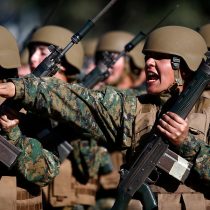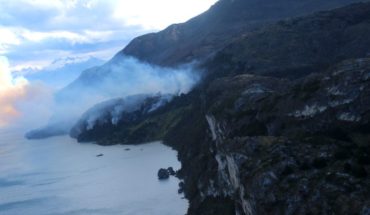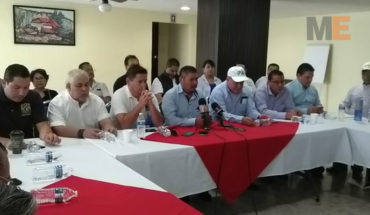
Budgetary control of all State services is essential to the country’s fiscal health. This includes the Armed Forces. These are one more specialized service of the State, involving large investments in infrastructure, high public financing for its current expenditure and for its strategic projects.
Control is also essential in the ethics of responsibility that in a modern state entails the organized exercise of the security function. It should include both the accounting of current revenues and expenditures, as well as the systematic and periodic analysis of the quality of that expenditure, that is, the efficiency with which the budget is endowed and executed in relation to the functional purposes of the service.
There should be no ambiguous situations or money in this accounting that are not reported. For example, the destination of tax returns, i.e. funds that were not executed in the respective calendar year, or that come from services to third parties that have generated income, should be clearly monitored and defined. Also the fruits or benefits of the permanent estate, all of which form the so-called own funds in our tax accounts, but whose primary origin comes from financing or contribution from the tax (of their own they should have nothing).
In Defence, the existence of internal activities involving accounting movements, without control or tax registration of the Public Treasury, is an invitation to corruption, since these moneys always have the reserve protection of “national security” in terms of access to information. If it is the primary obligation of the State to adequately finance the National Defense, it is, for its part, an essential obligation of its military institutes to probo spending and the information due to the Public Treasury. Chile’s recent experience leaves much to be desired in this area, it is a matter of remembering the so-called “Milicogate”.
Every weight invested in National Defense in peacetime resembles insurance that the country pays for, to prevent future armed conflicts or contingencies. The cost of such insurance competes, particularly in times of crisis as today, with the same resources with other state services, such as Health, Housing or Education. Hence the importance of rating the quality of spending and ensuring that there are no cuts, waste or bad decisions.
Recent press releases have accounted for real estate market operations by the Army that include the sale, in whole or in part, of properties belonging to the PAF (Fiscal Affectation Heritage) that manages its Welfare Command, and that has originated in free award that makes it the tax for institutional purposes, and that for some reason were never fulfilled or are no longer fulfilled.
Among them is a cloth located in the triangle formed by the streets Presidente Riesco, Alonso de Córdova and Américo Vespucio, exclusive sector of the Commune of Las Condes, whose award to third parties would border the 120 million dollars. Another operation would already be 4 years old, with the disposal of one hectare in front of the Military School, for $46 million, to the real estate company Ralei. This, after a failed $100 million project, transferred it to The Territory Real Estate, with interest from Arab investors, and which would invest $160 million in a mixed-use complex. A third, on which there is a press release informing, is the tender or sale of a cloth adjacent to the Military Hospital in the commune of La Reina, for a price of about $42 million. The explanation given is that the institution was capitalized to “be able to build three towers of buildings for NCOs in the commune of Central Station” (sic).
According to a trade sent by the Army to the Chamber of Deputies on the PAF, PAF has about 5,600 registered properties, with fiscal appraisal of more than $400 billion, and lease income of about $10 million a year (previous years). They are contribution-free properties, but are automatically disaffected from PAF when sold. The actual volume of area affected by the PAF in the country could easily reach about 8 million hectares and the properties exceed 10 thousand, apart from all military installations.
What is significant is that the accounting of this enormous heritage and its fruits is based outside the Current Budget, and that for the purchase of large weapons systems. The current defense spending will be 1.7 billionby 2021, which nearly doubles with the planned spending that the state pays retirees from its FF.AA. The PAF, when liquidated, should serve to reduce this load and not to enter a black hole of internal accounting.
PAF’s real estate actions are possible because there is a law that shields the delivery of assets to FF.AA. leaving them at the mercy of each institution’s will. Although today there are more formal procedures for accessing real estate, unlike the 1990s and before, during the dictatorship, in which it was to ask and carry.
For its part, the Ministry of National Goods has said that it does not have the power to reinstate to tax assets the assets of the PAF that are not being used.
The fundamental problem goes beyond budgetary issues. In the midst of a lack of control and transparency, no one can guarantee that there will be no chain of corruption or lack of probity, when goods with values of tens of millions of dollars are transferred, securities that even triple when goods enter the real estate market free. It is a speculative chain asaz dangerous to Homeland Security, which must be prevented. And that has nothing to do with military investments proper.





